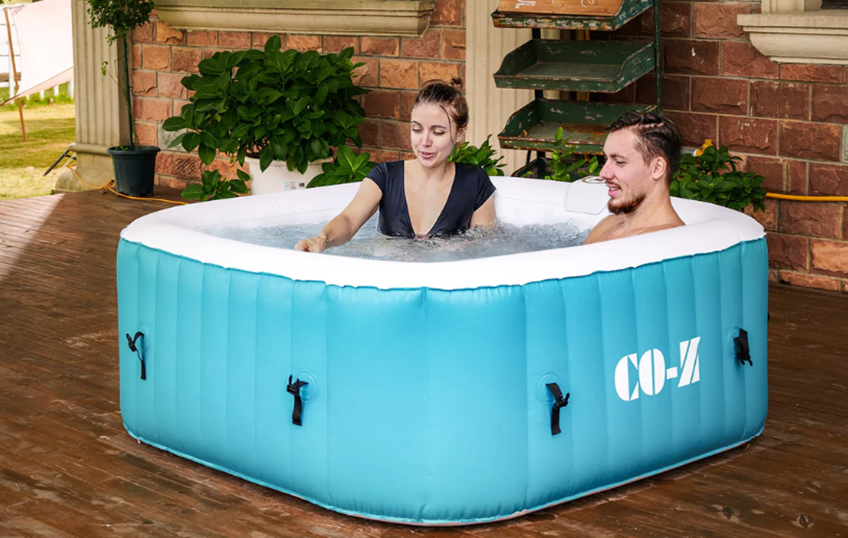The use of inflatable hot tubs is gaining attention for their potential mental health benefits, providing an accessible form of hydrotherapy in the comfort of one’s backyard. This trend highlights how warm water therapy can be a practical solution for individuals seeking to alleviate stress, improve sleep, and enhance overall well-being.
The Science of Warm Water Therapy
Immersing oneself in warm water has long been recognized for its soothing properties. The scientific rationale behind this comfort is grounded in physiological responses. When individuals soak in warm water, blood circulation increases, enabling better oxygen flow throughout the body. This not only aids in soothing tired muscles but also promotes relaxation by activating the parasympathetic nervous system, which is responsible for rest and recovery.
Research indicates that hydrotherapy can significantly reduce symptoms of stress and anxiety. As the body relaxes, it signals the brain to lower cortisol levels, the hormone linked to stress, while encouraging the release of endorphins and serotonin—natural chemicals that enhance mood and emotional stability. The buoyancy of water also alleviates pressure on joints and muscles, fostering a sense of safety and relaxation.
Benefits Beyond Relaxation
The advantages of using an inflatable hot tub extend beyond physical comfort. Regular sessions can contribute to improved sleep quality. Soaking in warm water raises body temperature, and the subsequent cooling process can signal to the body that it is time to rest. This natural transition promotes melatonin production, a hormone essential for regulating sleep cycles. Experts recommend soaking for approximately 20–30 minutes before bedtime to optimize these benefits.
Additionally, warm water therapy encourages mindfulness. Taking time to unwind in a tranquil environment allows individuals to disconnect from daily distractions, fostering an opportunity for reflection and mental clarity. Incorporating elements such as soft music or aromatherapy can enhance this experience, transforming an ordinary soak into a mini retreat.
Social interaction is another critical aspect of mental health that inflatable hot tubs can facilitate. Sharing a relaxing soak with friends or family can strengthen emotional bonds and provide a space for meaningful conversations. The informal setting of a hot tub encourages openness and connection, which are vital for overall emotional well-being.
Inflatable hot tubs, specifically, offer a practical solution for those looking to incorporate wellness into their daily lives. They are lightweight, portable, and easy to set up, making them an appealing option for many households. With built-in temperature controls and comfortable seating, users can enjoy the benefits of hydrotherapy without the commitment of traditional spa installations.
The affordability of inflatable hot tubs further democratizes access to these mental health benefits. Individuals can create their personal oasis, whether they have a small backyard or limited outdoor space. This flexibility allows more people to experience the positive effects of warm water therapy, making self-care both simple and effective.
As modern life continues to present its challenges, finding ways to prioritize mental health is essential. Using an inflatable hot tub for warm water therapy is an effective method to unwind and recharge. By reducing stress, improving sleep, and fostering emotional connections, the benefits of this practice can significantly enhance one’s quality of life.
In a time when mental health awareness is more critical than ever, embracing such straightforward and enjoyable self-care practices can lead to meaningful improvements in overall well-being. As individuals continue to explore ways to nurture their mental health, inflatable hot tubs may offer a welcome solution, inviting users to step into warm water and let their worries dissolve.







